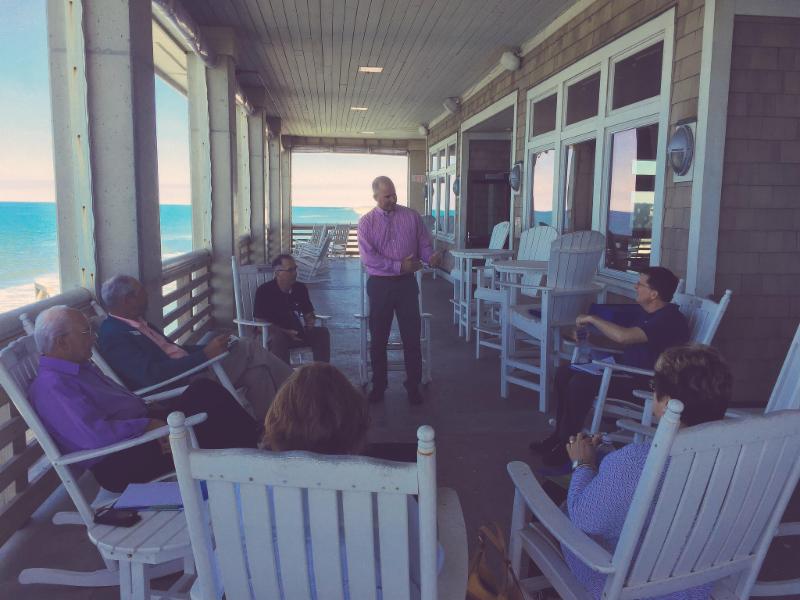
RURAL ROAD TRIP
80-County Listening Tour Continues
Now that the Rural Counts strategies are finalized and the program has been launched, the Rural Center has embarked on an 80-county tour of all the rural counties in North Carolina to listen to citizens and leaders discuss local perspectives on statewide issues.
Rural Center President Patrick Woodie and Advocacy Director John Coggin have visited 24 counties so far, hearing about local success stories in education, transportation, health care, and more. They have also gotten feedback about areas where rural communities most need to band together to amplify each other's voices on the rural economic development issues most important to us all.
Last week, the road warriors traveled over 600 miles across eastern North Carolina, making nine stops and talking with leaders from 15 counties in the northeast and coastal regions of the state. The first week in June, we take the tour to seven southwest counties. Interested in participating? Sign up now by clicking the registration links below.
Jackson County Public Library, Sylva
Monday, June 5
12:00 p.m.
Waynesville Town Hall, Waynesville
Monday, June 5
3:00 p.m.
Southwestern Community College, Franklin
Tuesday, June 6
9:00 a.m.
Hayesville Courthouse, Hayesville
Tuesday, June 6
2:30 p.m.
Tri-County Community College, Marble
Wednesday, June 7
9:00 a.m.
Swain County Technology & Training Center, Bryson City
Wednesday, June 7
12:30 p.m.
Waiting for a meeting in your county? Contact
John Coggin to schedule a community forum in your town.
|